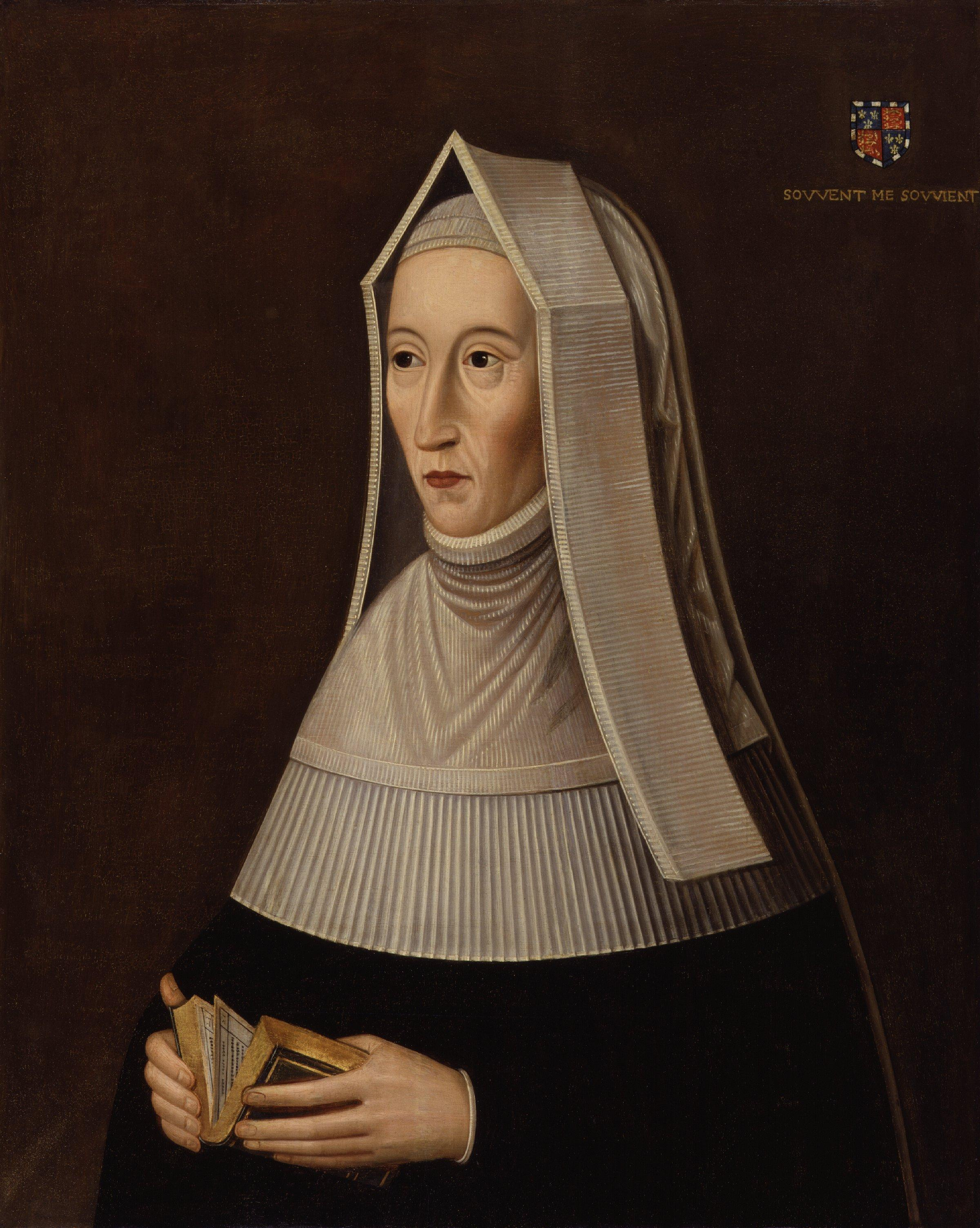Born just plain Henry Tudor to his thirteen-year-old (!!) mother, Margaret Beaufort, Henry had, through his mother's side of the family, a little stream of royal blood coursing through his veins along with all that other, non-royal blood.
To make matters more sketch, his royal blood was illegitimate royal blood.
His family had been legally warned: never pursue the throne; never, ever, ever even think about it - and yes, we know the royal blood is legit, it's just that it's royal bastard blood, end of story.
Or so it was thought.
Until Margaret Beaufort, the thirteen-year-old girl who, married at age twelve to
What with the War of the Roses and all, her husband Edmund had been taken captive and died of the plague while being held.
Little (both physically and in age) Margaret Beaufort, who, by today's standards would have been a year away from graduating middle school, instead nearly died giving birth to a son, who also nearly died in the birth process.
Instead, they both survived, and she named her baby Henry Tudor.
She was forced to go on the run with the toddler, Henry, due to that same War of the Roses - she was fifteen, he was two, and eventually, leaving her boy in a politically neutral part of France was the best chance she had of making sure the child lived to adulthood.
So, leave him she did.
But she not only never forgot about him, she kicked it into high gear when it came to making sure everyone who would listen knew her son had a claim to the throne.
It's easy to underestimate how strong a character it took to promote a family name, or family member, in order to get into the running for the grand stakes of taking the throne.
Margaret Beaufort knew she'd never be queen, but by God, if there was a snowball's chance in hell that her son would sit on the throne of England with his trickles of royal blood, she was going to make it happen.
The young widow paid close attention to the tug of war going on over the throne of England as the War of the Roses dragged on and on.
She may have cut back room deals with other claimants to the throne; when powerful families aligned through marriage, big things could happen.
She may have supported an uprising or two, the kind designed to throw shade at the king and to (hopefully) knock him off his throne.
 |
| It's a tough world, but I'm tougher: Margaret Beaufort |
Back to her son, Henry: by the time Henry Tudor was twenty-eight years old, he'd lived out of the country of England for most of his life.
He knew first-hand what it meant to be on the run from political enemies who thought nothing of killing children if their parentage meant the children stood a chance of getting ahead of the political enemies.
Henry Tudor, grew up, grew strong, grew bold.
With his mother's backing and the backing of those his mother urged to help, Henry built up an army.
Richard III, (a.k.a. "Anyone seen the little Princes in the Tower lately?") had unilaterally decided he was the king of England and so far, nobody had the nerve to try to stop him.
Nobody that is, until Henry Tudor.
 |
| If you think I'm tough, you should meet my mom! Henry Tudor |
On Sunday, 7 August, 1485 Henry Tudor and his army - just under 2,000 French soldiers as well as Welch and English troops - snuck into Wales after sailing around the southern end of England from their starting point in France.
Knowing Richard III had already heard Henry and his men were coming for him, Henry chose to land in Wales in a bay protected by two prongs of land that jutted out far enough to block the view of the bay from the mainland.
As the leader of the army, Henry came ashore, and, as all his soldiers watched, he knelt and (loudly) prayed, "Judge me oh God and favor my cause."
He kissed the ground, made the sign of the cross, and gave props to his troops by telling them they and their cause (serving him, lol) were as valiant, true and brave as Saint George, who once slew a dragon.
After that, Henry and his men waved bye-bye at the ships that brought them, as seeing huge troop hauling ships along the shore would tip off Richard III that something was up.
It had to have been a terrifying moment - as the ships sailed away, there was no way to go but forward.
Henry Tudor and his army were committed; either they would take the crown on the battlefield, or they'd die trying - and the ships sailing away, leaving them alone on a beach in a far-flung corner of Wales, would have undeniably underlined that fact.
With that, on 7 August, 1485, Henry Tudor put in motion the invasion that won him (barely) the crown of England and put his family on the throne for the next 118 years.
 |
| Richard III, Accused Nephews-slayer, Wailer of Losing His Kingdom Over a Lame Horse, Car Park Resident for over 500 years. |
No comments:
Post a Comment